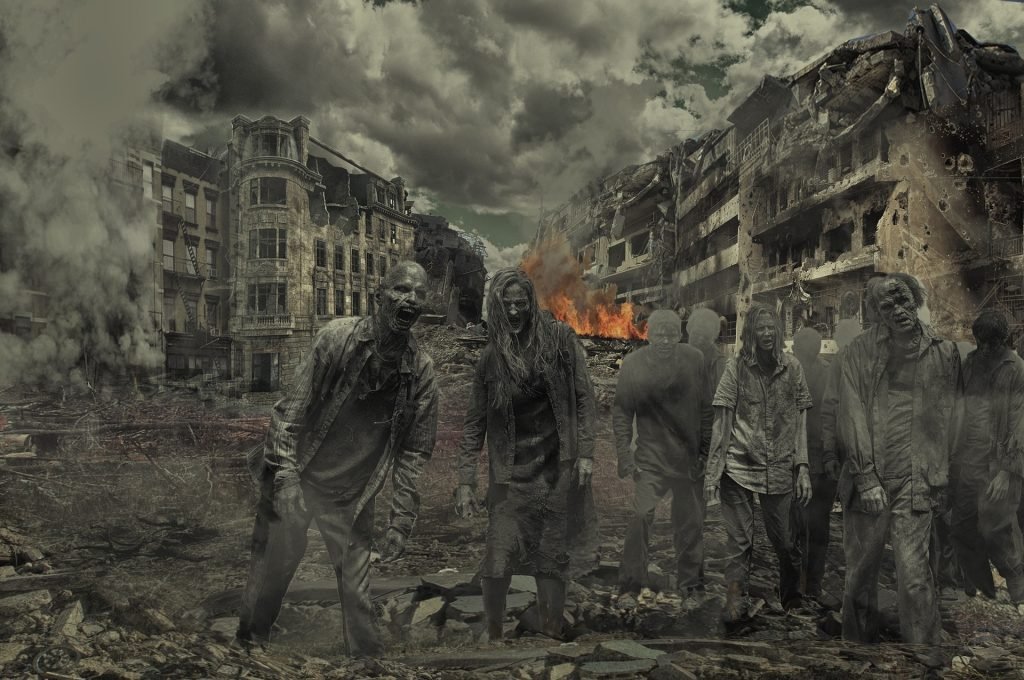Zombies occupy an important place in the world of novels and movies. Examples include Max Brooks' novel “World War Z'' (subtitled “An Oral History of the Zombie War'') and George Romero's famous film “Night of the Living Dead.''
From these sources we learn certain established facts about zombies, namely that to kill them you need to shoot them in the head with a pistol or rifle, and that zombies can turn living humans into zombies. You will know that. For example, in “Night of the Living Dead,” the dead come back to life and eat the flesh of the living. This seems to be good for the heart of zombies, but not for the living, who die from infected wounds and turn into zombies.
An example of life imitating fiction is the case of Signature Bank and New York Community Bank (“NYCB”). Signature Bank has become a zombie bank due to its severe bankruptcy. As expected, the FDIC and the Federal Reserve rode a white horse to the rescue, arranging for Signature Bank to be acquired by NYCB, thereby reducing depositors (including those whose deposits exceeded the FDIC's $250,000 limit). ) was protected.
Unfortunately for NYCB, the zombie virus that infected Signature Bank turned out to be contagious. As a result, NYCB itself may be becoming a zombie bank. Shares of parent company New York Community Bancorp have fallen from about $11 to as much as $3.60 in recent weeks, like a safe falling from a 17-story building. The drop in stock prices was so sudden that the issue triggered a circuit breaker on the New York Stock Exchange. The main causes appear to be non-performing loans and an increase in the deposit reserve ratio.
The NYCB fiasco is part of that. This is part of a larger national problem stemming from loans backed by commercial office buildings, apartment complexes, retail stores, and factories. Currently, it is estimated that 44% of office building loans are “underwater” (meaning the fair market value of the building is significantly lower than the loan balance). Many, perhaps most, of these loans are non-recourse, leaving lenders in a bind if they have to foreclose and sell the building.
Similar to what happened before 2008, bank lenders extend loan maturities, temporarily avoid foreclosure, and hope that both lenders and borrowers will be bailed out by rising market values. We are playing the “Extension and Pretend” game. . The loan is reported as “in progress” on the bank's books. In fact, the bank is insolvent on a market value basis, with the actual fair market value of all its assets being less than the value of its bank deposits combined with other bank liabilities. By some estimates, 300 of the country's 4,800 banks are now zombie banks.
should Many Some of these banks have failed in a short period of time, resulting in bad publicity. It could trigger a nationwide run by cautious depositors, especially those with deposits exceeding the FDIC limit of $250,000. In this situation, remember that while there is little downside to withdrawing money from a failed bank, there are many downsides if your deposit is over $250,000.
The “progressive” left's tendency to release hardened criminals from prison and prosecute and imprison people who pray outside abortion clinics is at play here. Chicago, which effectively became Gotham City in the Batman movies, is particularly bad in this regard. Dozens of people are murdered every week. It's no surprise that this has implications for companies with offices in Chicago.And we discovered the following The city's beautiful Art Deco office building currently has a reported vacancy rate of 83 percent. In another hell of the left, In Los Angeles, many buildings are worth only half of their pre-2020 value. Los Angeles County District Attorney George Gascón probably won't receive Christmas cards from those building owners or their papered lenders next year.
over- Over the next five years, $2.6 trillion in commercial real estate loans are expected to mature. Banks hold $1.4 trillion.
It should be an interesting five years.
After the debacle of 2007-2009, Elliott Wave International's Robert Prechter released the Zombie Bank Index. Keep an eye on the replay.
*****
Mark Wallace is a former attorney and federal bankruptcy judge.
Image credit: Pixabay
I take action
As we move through 2023 and into the next election cycle, The Prickly Pear is back with Take Action recommendations and information.







